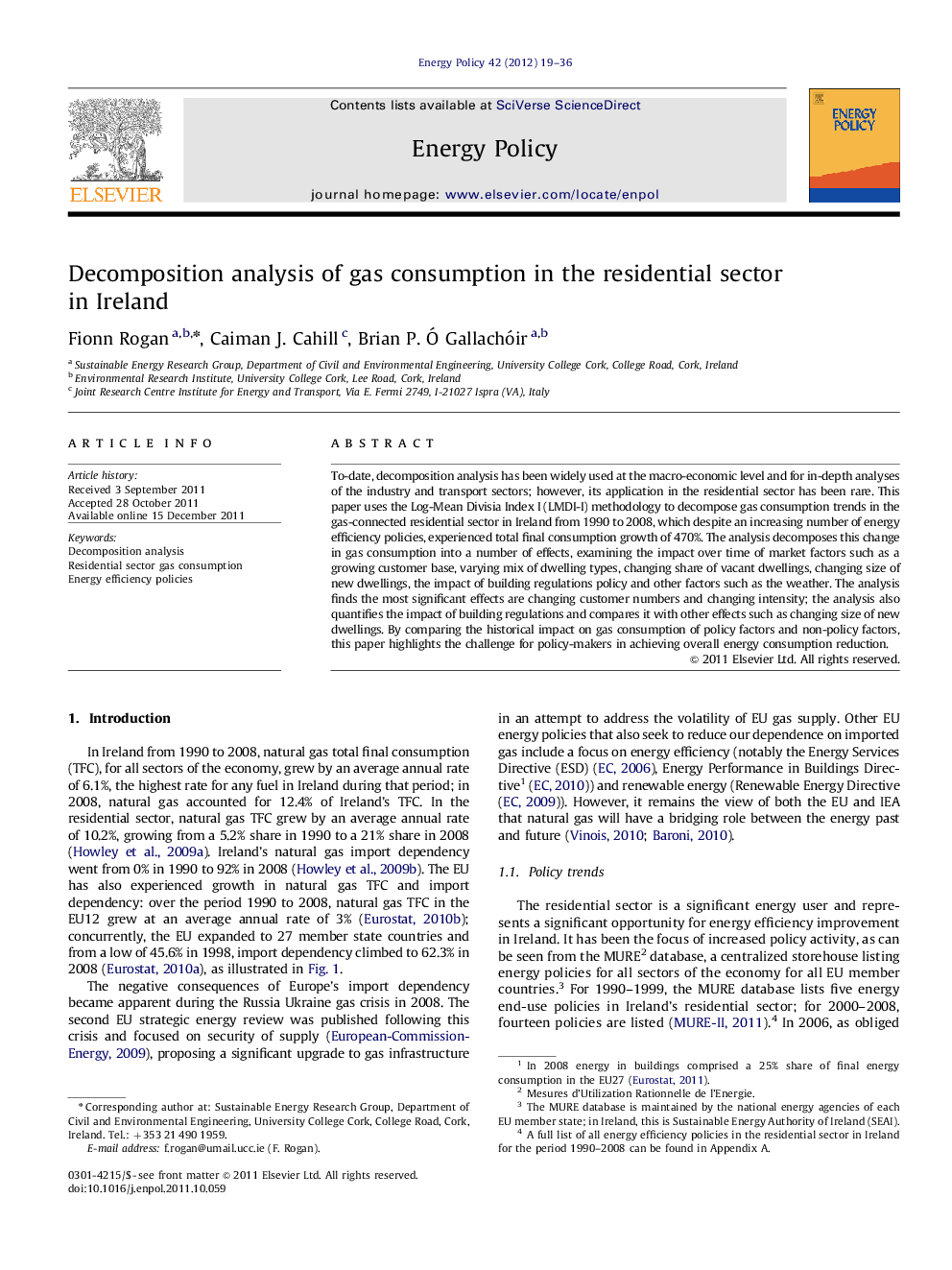| Article ID | Journal | Published Year | Pages | File Type |
|---|---|---|---|---|
| 995743 | Energy Policy | 2012 | 18 Pages |
To-date, decomposition analysis has been widely used at the macro-economic level and for in-depth analyses of the industry and transport sectors; however, its application in the residential sector has been rare. This paper uses the Log-Mean Divisia Index I (LMDI-I) methodology to decompose gas consumption trends in the gas-connected residential sector in Ireland from 1990 to 2008, which despite an increasing number of energy efficiency policies, experienced total final consumption growth of 470%. The analysis decomposes this change in gas consumption into a number of effects, examining the impact over time of market factors such as a growing customer base, varying mix of dwelling types, changing share of vacant dwellings, changing size of new dwellings, the impact of building regulations policy and other factors such as the weather. The analysis finds the most significant effects are changing customer numbers and changing intensity; the analysis also quantifies the impact of building regulations and compares it with other effects such as changing size of new dwellings. By comparing the historical impact on gas consumption of policy factors and non-policy factors, this paper highlights the challenge for policy-makers in achieving overall energy consumption reduction.
► Contribution to a gap in the literature with a residential sector decomposition analysis of gas TFC. ► Activity effect had the largest impact and was cumulatively the best explainer of total TFC change. ► Intensity effect was the second biggest effect with a 19% share of total TFC change. ► In line with rising surface temperatures, the weather effect is declining over time. ► Building regulations are having a diminishing impact but are being negated by larger dwellings.
